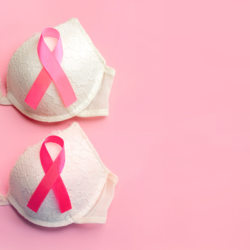As we all know, protecting your skin from the sun’s rays is essential to maintaining good health. Frequent and prolonged exposure to UV rays promotes skin ageing and the risk of cancer, including melanoma, which is the most aggressive. The question is, what should you do if you develop skin cancer? Today, we offer you solutions to protect yourself naturally, but also to prevent these pathologies correlated with sun exposure, as well as the appropriate steps to take as soon as they appear.
Everything you need to know about melanoma
Of all skin cancers, melanoma is the most serious because of its ability to metastasise. It is a malignant tumour of the pigmentary system that develops from a skin cell called a melanocyte. In 80% of cases, it is characterised by the appearance of a pigmented spot on healthy skin, and in 20% by the degeneration of a pre-existing mole. Early detection gives a better chance of cure.
The ABCDE rule criteria can help to recognise the warning signs of a melanoma: A for Asymmetry, B for Irregular borders, C for Non-homogeneous colour, D for Increasing diameter and E for Evolution.
As soon as one or more of these symptoms appear, it’s essential to go for screening. Most of them can be cured if detected at an early stage. After surgery to remove the tumour and any affected lymph nodes, treatment depends on the stage of the cancer: immunotherapy, chemotherapy and radiotherapy.
Cutaneous carcinoma
These are the most common and least serious skin cancers. In fact, these non-melanocytic cancers account for over 90% of all cancers, and fortunately have a good prognosis. They develop in epidermal cells and almost never metastasise. Most cutaneous carcinomas are found on the face and neck. They often appear after the age of 50 in the form of red, pink or flesh-coloured plaques. Surgical removal is performed under local anaesthetic.
For superficial forms, more gentle treatments are sufficient to eradicate them. These include the application of creams to the lesion.
Specially adapted to the most exposed areas, ISDIN Eryfotona’AK Fluid SPF100 50ml provides very high UVB 109, UVA 39 sun protection to protect DNA from the appearance of actinic skin lesions (AKs). It also reduces the subclinical cancer field associated with non-melanoma skin cancer. This treatment should be applied to the affected areas of the body twice a day. If exposed to direct sunlight, repeat every 2 hours for optimum effectiveness.
If you have skin that is hypersensitive to the sun and prone to actinic keratoses, Avene Sunsimed Ka very high protection spf50 80 ml is the ideal treatment to protect your skin on a daily basis. Its formula contains a patented photostable filtering system to form a shield against UVA and UVB rays and, in particular, to combat photoageing and cellular damage, thanks to its Sunsitive complex of phytoprotective active ingredients which is a powerful antioxidant
Skin cancer treatments
Skin cancer treatment depends on the type and stage of the disease. In many cases, surgery is required to remove the tumour and surrounding tissue. In more advanced cases, chemotherapy or radiotherapy may be necessary to destroy the cancer cells.
Immunotherapy is a new form of treatment that stimulates the immune system. This is to help it fight skin cancer. This method can be used to treat advanced melanoma. Finally, photodynamics is a technique that involves using a light-sensitive drug to destroy cancer cells. This method is often used to treat superficial skin carcinomas and actinic keratoses.
The different forms of skin cancer prevention
There are several ways of preventing skin cancer, including adopting measures to protect against the sun’s UV rays. The first step is to avoid exposure to the sun between 12pm and 4pm, when the rays are strongest. It is also advisable to wear covering clothing, a hat and sunglasses to protect the skin from harmful rays. Regular application of sunscreen is also crucial to protect the skin, especially the most exposed areas such as the face, neck and arms.
Another form of prevention is regular self-examination. This allows early signs of the disease to be detected. It is important to monitor existing moles and look for any new pigmented spots.
Finally, it is important to maintain good general health to prevent skin cancer. This means eating a balanced diet, exercising regularly, not smoking and limiting alcohol consumption.
Our opinion on the role of prevention
As natural health professionals, we can only recommend prevention as the best weapon against skin cancer. This means rigorous sun protection, using high SPF sun creams and avoiding prolonged exposure at the hottest times of the day. It’s also important to eat a diet rich in antioxidants and skin-friendly nutrients, such as colourful fruit and vegetables, nuts and oily fish. Finally, it’s essential to look after your skin by adopting a healthy lifestyle and avoiding risky behaviour, such as excessive alcohol consumption and smoking.
How do I choose the right sun cream?
Preventing skin cancer starts with adequate sun protection. This means choosing the right sun cream for your skin type and the environment you’re in. Here are a few tips for choosing the right sun cream to prevent skin cancer or recurrence:
- Look for a broad-spectrum sun cream: this means it protects against both UVA and UVB rays.
- Check the sun protection factor (SPF): SPF indicates the level of protection against UVB rays. Choose a sun cream with an SPF of at least 30.
- Choose a sun cream that is water-resistant: this means that it remains effective for 40 to 80 minutes when wet.
- Choose a sun cream without perfume or alcohol: these can irritate the skin and cause allergic reactions.
- Consult your dermatologist to find out which sun cream is best suited to your skin type.
- Opt for sun creams containing antioxidants such as vitamin C or vitamin E. These ingredients can help protect the skin from damage caused by free radicals.
- Use enough sun cream: apply enough to cover your whole body, and reapply every two hours or after swimming or sweating.
By choosing the right sun cream, you can help prevent skin cancer or its recurrence. Protecting your skin from the sun is essential to maintaining healthy, radiant skin for years to come.





